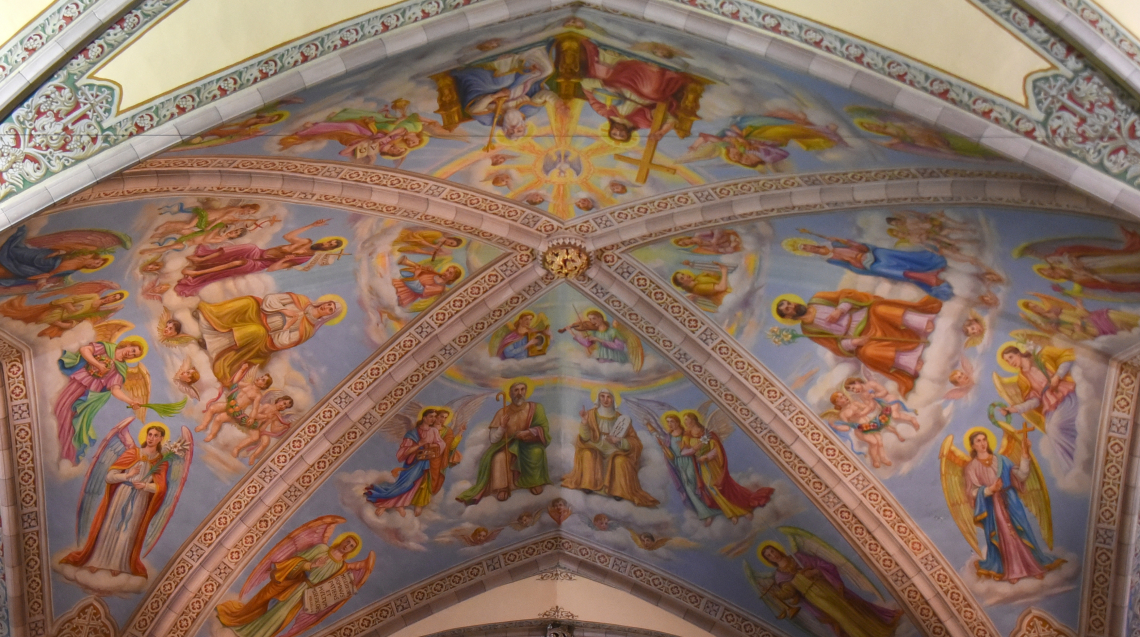The Nicene Creed, Part 5

The Father
“I believe in… the Father almighty, maker of heaven and earth, of all things visible and invisible.”
Having briefly glanced at the Trinity as a whole in my last article, I’ll now look at what the Creed says about the Father here. It’s important to note that the attributes that the Creed ascribes to any of the Divine Persons belong to all three in some manner. The Father is called Creator, but all things are created through the Son and in the Holy Spirit. In the same way, we call the Son the Redeemer, but the Father and the Holy Spirit are also involved in redemption. We may ascribe some attributes primarily to one Divine Person, but all three Persons share in them in some form.
What the Creed professes about the Father is brief. I have quoted it in its entirety above. Yet, we could spend a great deal of time reflecting on the implications of each phrase.
The Creed names the Father as the “maker…of all things.” This making is called creation. When we speak of God creating, we mean something different from the way we speak of creativity in human beings. We may come up with ideas, but we need some material ‘stuff’ to work with: paint, clay, wood, recipe ingredients, a keyboard. God creates out of nothing. God conceives of something and brings it about without any previously existing ‘stuff’ to work with.
We tend to think of God’s creating of all things as something that happened in the far distant past. Creation began then, but it continues even now. God is, from our point of view, constantly creating, in that God always sustains the universe in existence.
This is one of the reasons we refer to God as “almighty.” We cannot truly imagine a power capable of bringing things into being out of nothing and then maintaining everything in existence. Thus, we affirm that God can do all things.
God is almighty, but not in the sense we usually think of when we imagine great power. God can do all things, but not in the way we might think we would if we had such power. God is not a superhero that we might find in comic books or movies. In fact, St. Paul was told that God’s power becomes perfect in weakness.
We see this power revealed in weakness in creation itself. God brings the universe into being. God guides its development, slowly, patiently, gently, in a manner that respects its nature. We see this in all that science has discovered about the formation of the universe, of our solar system, and the development of our Earth. We see this in the evolution of life – which is not haphazard but is guided by God’s own word and spirit. We see this power revealed in weakness in a most striking way in the Passion, death, and resurrection of Jesus.
The Father, then, can be described as the source of all life. The Son is the perfect self-gift of the Father. The Spirit is the perfect loving union of Father and Son. Creation, and the ultimate bringing forth of life in this world, also flows ultimately from the FatherThe Scriptures use the name “Father” to speak of God as the source of life. The peoples of the ancient world, who could not have known what we know about how human life begins, thought of a father as the source of the seed of life, a seed that the mother welcomes and nourishes until the child is ready to be born. The name “Father” also captures the scriptural image of God as husband an
d Israel and then the Church as wife. Even though using “Father” and “Son” language for God presents difficulties for some people today, it is important to maintain these names because of their links with salvation history, while at the same time showing how they need not be used to maintain any oppressive “patriarchal” structures. Moreover, in a society where fathers are often absent, or where some have had negative experiences of their fathers, we all the more need to reconnect with a positive sense of who and what a father is. Reflecting on the fatherhood of God can help us do that. Besides, Jesus tells us that anyone who knows Him knows the Father. Keeping this in mind can help reshape our images of fatherhood and help them grow into the fullest and spiritually healthiest expression of what God intends them to be.
By: Father Mark Nolette










